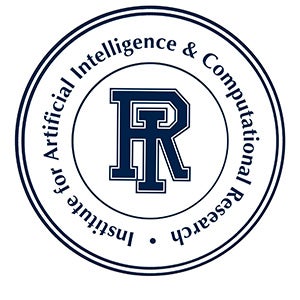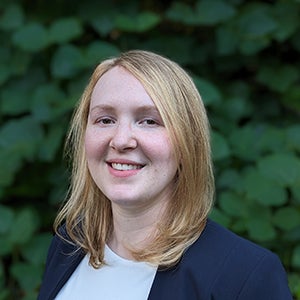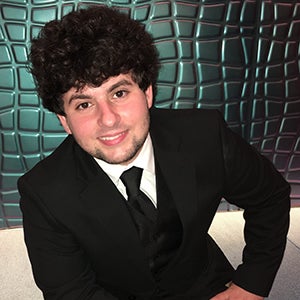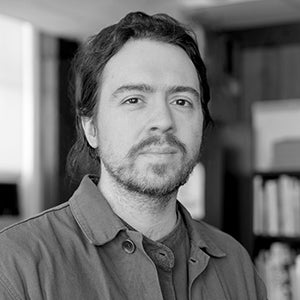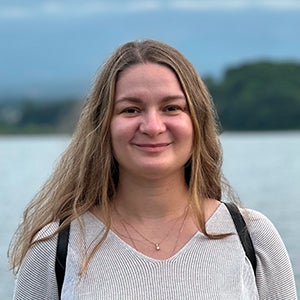When: Wednesday, March 4, 3:00 PM Where: Pharmacy 240 Abstract The generation of synthetic data whose distributions faithfully emulate the true data-generating mechanism is of critical importance in modern statistics and data science, with applications ranging from systematic model evaluation to augmenting limited datasets. While Wasserstein Generative Adversarial Networks have shown promise in this area, […]
Continue reading "[Talk] Chenyang Zhong: Faithful and Efficient Synthetic Data Generation via Penalized Optimal Transport Network"Category: Seminars
[Talk] Ruyu Zhou: Differential Privacy and Statistics: Privatized Inference and the Inherent Privacy of Sampling
When: Friday, March 6, 3:00 PM Where: Tyler 055 Abstract Privacy-preserving data analysis has become a central challenge in modern statistics, with Differential Privacy (DP) emerging as the gold standard for protecting individual-level information. In this talk, I will present two projects at the intersection of DP and statistics. First, focusing on privatized inference, I […]
Continue reading "[Talk] Ruyu Zhou: Differential Privacy and Statistics: Privatized Inference and the Inherent Privacy of Sampling"[Talk] Data and Discussion DS event: Academic and Professional Opportunities
When: (Date Change) Friday, April 3, Time TBA Where: TBA Abstract Join us for an engaging Data Science event featuring Alena Korshunova (MBA), currently a Business Intelligence Analyst at FM Global, who will share insights into her career path and experience working in industry. This is a wonderful opportunity to learn about real-world applications of […]
Continue reading "[Talk] Data and Discussion DS event: Academic and Professional Opportunities"[Talk] Jiachen Chen: Cross-Modal and Cross-Cohort Learning in Multi-Omics Integration: Toward Generalizable Aging Models
When: Friday, March 13, 3:00 PM Where: Tyler 055 Abstract Biological aging emerges from dynamic interactions between molecular systems and longitudinal physiological change, yet most aging models rely on single-omics or cross-sectional data and often fail to generalize across heterogeneous cohorts. We present a unified framework for cross-modal and cross-cohort learning in multi-omics integration to […]
Continue reading "[Talk] Jiachen Chen: Cross-Modal and Cross-Cohort Learning in Multi-Omics Integration: Toward Generalizable Aging Models"[Talk] Alina Jade Barnett: Inherently Interpretable Deep Learning Models
When: Thursday, March 12, 3:00 PM Where: Avedisian 205 Abstract AI models now perform high-stakes tasks traditionally reserved for skilled professionals, often surpassing human expert performance. Despite these advances, the “black box” (i.e., uninterpretable) nature of many machine learning algorithms poses significant challenges. Opaque models resist troubleshooting, cannot justify their decisions, and lack accountability—limitations that […]
Continue reading "[Talk] Alina Jade Barnett: Inherently Interpretable Deep Learning Models"[Talk] Mike Conti: Analysis of Early Interventions to Retain Underrepresented Students in Computer Science
When: Friday, February 27, 3:00 PM Where: Changed to Zoom Abstract Computer science, like many STEM disciplines, faces persistent challenges in recruiting and retaining women and individuals from racially and ethnically minoritized backgrounds. This study examines whether targeted interventions can produce sustained improvements in academic performance and sense of belonging among these underrepresented groups. By […]
Continue reading "[Talk] Mike Conti: Analysis of Early Interventions to Retain Underrepresented Students in Computer Science"[Talk] Efficient Gaussian Process Surrogates for Blackbox Optimization and Posterior Approximation
When: Friday, February 20, 11:00 AM Where: Pharmacy 240 Abstract In this talk, we explore efficient Gaussian process surrogate modeling in two distinct contexts: bandit optimization and blackbox posterior approximation. For optimization, we propose novel noise-free Bayesian optimization strategies that incorporate a random exploration step to enhance the accuracy of Gaussian process surrogate models. The […]
Continue reading "[Talk] Efficient Gaussian Process Surrogates for Blackbox Optimization and Posterior Approximation"[Talk] Travess Smalley: Generative Systems in Art & Design
When: Friday, February 20, 3:00 PM Where: Tyler 055 Abstract Generative Systems in Art and Design is an artist talk that surveys Travess Smalley’s generative practice, including scripting in Adobe Photoshop, creative coding, and building small creative software. It also looks at ways software-based systems can be translated into physical prints and exhibition work. The […]
Continue reading "[Talk] Travess Smalley: Generative Systems in Art & Design"[Talk] Lesia Semenova: Which Model Should You Trust When Many Models Fit?
When: Thursday, February 12, 12:00 PM Where: Bliss 190 Abstract In practice, there is rarely a single “golden” answer. In this talk, I argue that trustworthy ML should be set-valued: instead of validating a single model, we should reason over the Rashomon set (the set of models that meet a performance criterion). I’ll present a […]
Continue reading "[Talk] Lesia Semenova: Which Model Should You Trust When Many Models Fit?"[Talk] Xiaomeng Ju: Bayesian Modeling for Functional and Matrix Data with Applications to Neuroimaging Analysis
When: Wednesday, February 18, 12:00 PM Where: Avedisian 105 Abstract Neuroimaging data present fundamental statistical challenges: they are high-dimensional and exhibit complex structures. In this talk, I present Bayesian methods developed for functional data and matrix-valued data motivated by neuroimaging applications, emphasizing interpretability, scalability, and uncertainty quantification. I first introduce Bayesian methods developed for two […]
Continue reading "[Talk] Xiaomeng Ju: Bayesian Modeling for Functional and Matrix Data with Applications to Neuroimaging Analysis"
